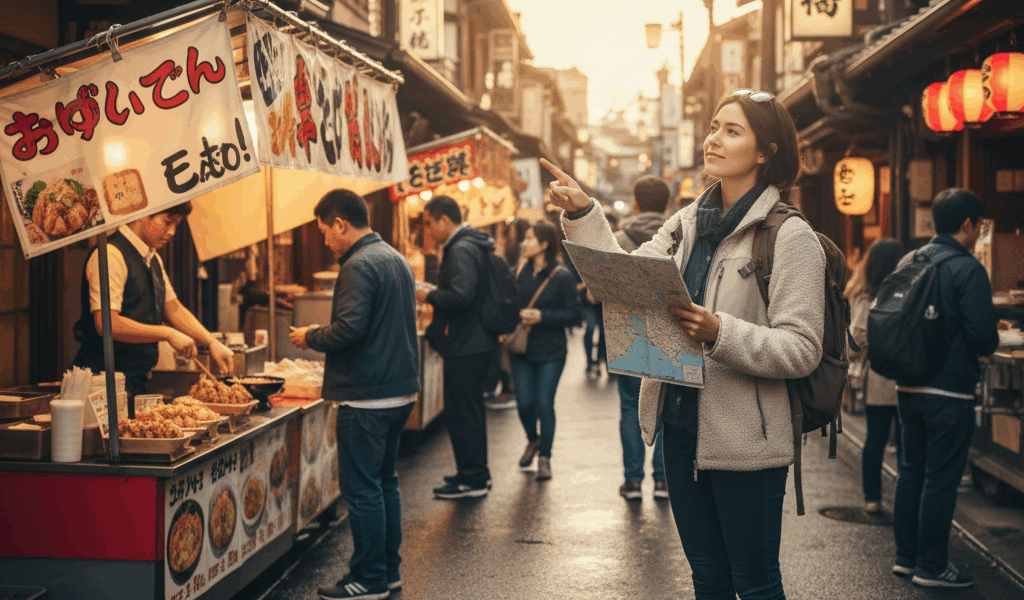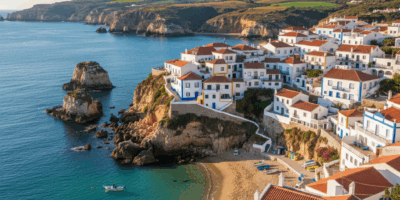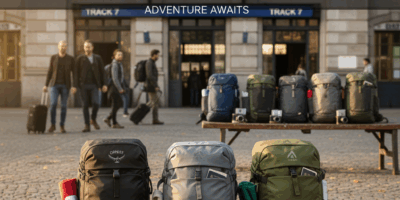Is Japan Expensive?
Japan budget planning has gotten complicated with all the travel advice flying around. As someone who traveled to 60+ countries over 15 years and spent three extended trips exploring Japan from Hokkaido to Okinawa, I learned everything there is to know about stretching your yen. Today, I will share it all with you.
Accommodation Costs
Accommodation ranges from luxury hotels to budget hostels. Major cities like Tokyo and Osaka have higher prices. A night in a three-star hotel in Tokyo can cost around $100-150. Capsule hotels, unique to Japan, offer a budget-friendly option costing around $30-50 per night. For more authentic experiences, consider staying in ryokans, which are traditional inns. Ryokans can range from $80 to over $400 per night, depending on location and amenities. That’s what makes capsule hotels endearing to us budget travelers — the experience itself becomes part of the adventure.
Food Expenses
Food in Japan can be both economical and pricey. Convenience stores like 7-Eleven, FamilyMart, and Lawson offer affordable meals and snacks. A quick meal such as onigiri (rice balls) or bento (packed meal) can cost between $2-6. Fast food chains and casual dining places like ramen shops offer meals ranging from $6-15. Mid-range restaurants with sushi or teppanyaki might charge between $20-50 per person. High-end restaurants, especially those in luxurious hotels or renowned sushi bars, can cost from $100 upwards per person. Probably should have led with this section, honestly — Japanese convenience store food is surprisingly excellent.
Transportation Fees
Transportation in Japan is efficient but can be costly. The Japan Rail Pass, available for tourists, offers excellent value for unlimited travel on most JR trains. A 7-day pass costs about $275. Without the pass, a single Shinkansen (bullet train) trip from Tokyo to Kyoto costs around $130 one way. Local subway and bus fares in cities like Tokyo and Osaka range from $1.50 to $3 per ride. Many cities also offer day passes for unlimited travel within a day, costing around $6-10. That’s what makes the JR Pass endearing to us travelers — it pays for itself after just a couple of long-distance trips.
Cost of Activities
Activities and sightseeing in Japan have a wide price range. Many temples and shrines have free or low-cost entry, usually around $3-10. Museums typically charge between $5-15 for entry. Theme parks like Disneyland or Universal Studios Japan cost about $70-80 for a day pass. Guided tours and cultural experiences, such as tea ceremonies and cooking classes, can range from $30-100 per session. The beauty of Japan is that some of the best experiences — walking through bamboo groves, watching cherry blossoms, exploring ancient neighborhoods — are completely free.
Shopping Expenses
Shopping in Japan varies greatly by what you’re buying. Electronics in places like Akihabara can be more affordable compared to Western prices. Fashion and beauty brands might range from budget to high-end with stores like Uniqlo offering quality items at competitive prices. While designer brands in areas like Ginza can be very expensive. That’s what makes Tokyo’s shopping districts endearing to us wanderers — there’s literally something for every budget level.
Seasonal Considerations
Prices can fluctuate based on the season. Cherry blossom season in spring and autumn leaves season are peak times for tourism, leading to higher accommodation rates. Off-peak times like summer (excluding Obon in mid-August) or winter, excluding the New Year period, may offer lower prices. I’ve found January and February to be sweet spots — fewer crowds and better prices, plus onsen season is perfect then.
Hidden Costs
Don’t forget hidden costs like ATM fees. Exchange rates can also affect your spending. Plan for small extra expenses like tips, though tipping isn’t customary in Japan, or delivery fees for luggage forwarding services. Probably should have led with this section, honestly — the takkyubin (luggage forwarding) service is a game-changer that costs around $15 per bag.
Affordable Travel Tips
- Book accommodation in advance to find the best deals.
- Utilize convenience stores for affordable and delicious meals.
- Purchase a JR Pass for long-distance travel.
- Take advantage of free attractions and walking tours.
- Plan your visit during off-peak seasons.
Considering all these aspects will help you determine if Japan is expensive for you. Planning and budgeting can make a huge difference in your experience. That’s what makes Japan endearing to us travelers — it can fit almost any budget if you plan smartly.



